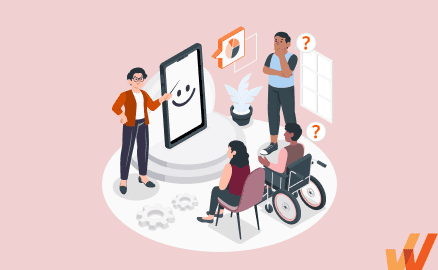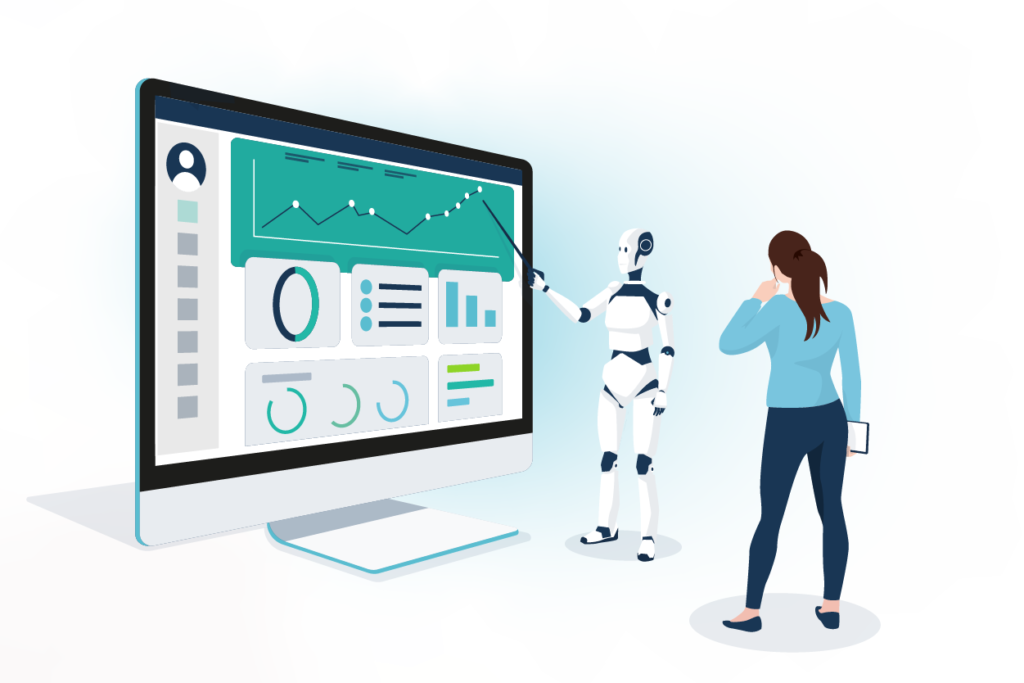In today’s digital age, adaptive learning technologies are transforming education by personalizing learning experiences through Artificial Intelligence (AI). These technologies tailor instruction to meet the unique needs of each student, making education more efficient, engaging, and effective.
With AI-driven algorithms, real-time feedback, and data-driven insights, adaptive learning platforms are redefining traditional education, helping learners progress at their own pace while improving comprehension and retention.
In this article, we’ll explore what adaptive learning is, how AI enhances personalized education, and the benefits of these technologies in modern classrooms.
What is Adaptive Learning?

- Adaptive learning is an AI-driven educational approach that customizes learning materials and activities based on a student’s progress, strengths, and weaknesses.
- Unlike traditional teaching methods, adaptive learning systems analyze student performance in real time, adjusting content to optimize learning outcomes.
- These systems are widely used in K-12 schools, universities, and corporate training programs to create dynamic, personalized learning paths.
How AI Enhances Adaptive Learning
AI-powered adaptive learning platforms use machine learning and data analytics to:
- Assess Individual Learning Styles – AI detects whether a student learns best through visual, auditory, or hands-on methods.
- Adjust Content in Real Time – Lessons adapt based on student performance, providing extra challenges for advanced learners and reinforcement for struggling students.
- Provide Instant Feedback – AI-driven systems give real-time feedback to help students correct mistakes and reinforce concepts immediately.
- Track Progress and Predict Outcomes – AI analyzes student data to predict learning gaps and future performance, allowing educators to provide targeted interventions.
- Enhance Engagement Through Gamification – Many adaptive learning tools integrate interactive elements, quizzes, and rewards to keep students motivated.
Benefits of Adaptive Learning Technologies
1. Personalized Learning for Every Student
- Adjusts difficulty levels based on individual student progress.
- Supports self-paced learning, catering to fast and slow learners alike.
- Helps students master concepts before moving forward, reducing frustration.
2. Improved Student Performance & Retention
- AI identifies knowledge gaps and reinforces weak areas with tailored exercises.
- Encourages active learning through interactive and adaptive lessons.
- Increases long-term retention by adjusting content based on memory recall models.
3. Real-Time Feedback & Data-Driven Insights
- AI-powered tools provide instant assessments, allowing students to correct mistakes immediately.
- Educators receive detailed analytics to track progress and make data-informed teaching decisions.
- Enables early intervention for struggling students.
4. Enhanced Teacher Support & Efficiency
- Reduces workload by automating grading, feedback, and content delivery.
- Allows teachers to focus on one-on-one instruction and student mentoring.
- Supports differentiated instruction by grouping students based on skill level and needs.
5. Increased Engagement & Motivation
- AI-driven gamification elements make learning fun and interactive.
- Provides rewards, challenges, and adaptive quizzes to keep students engaged.
- Offers a sense of accomplishment as students track their progress.
Popular Adaptive Learning Platforms Using AI
🎓 Khan Academy – Uses AI to adjust lessons based on student progress.
📚 Duolingo – AI-driven language learning that adapts to user skill levels.
💻 DreamBox – A math learning platform that tailors lessons in real time.
🧠 Socratic (by Google) – AI-powered app that helps students solve problems with step-by-step explanations.
📊 Smart Sparrow – A personalized learning platform for higher education and corporate training.
Challenges & Considerations
- Access & Equity Issues – Not all students have equal access to technology and high-speed internet.
- Data Privacy Concerns – AI learning tools collect large amounts of student data, raising security and privacy concerns.
- Teacher Adaptation & Training – Educators need proper training to integrate AI-powered tools effectively.
- Over-Reliance on Technology – While AI enhances learning, human interaction and teacher guidance remain crucial.
The Future of AI in Education
As AI and machine learning continue to evolve, adaptive learning technologies will become even more advanced, intuitive, and accessible. Future developments may include:
🌍 More Inclusive Learning – AI-driven education that supports students with disabilities and non-traditional learners.
🎮 Immersive Learning Experiences – The use of VR (Virtual Reality) and AR (Augmented Reality) to create interactive, adaptive lessons.
🤖 AI-Powered Tutoring Assistants – Virtual tutors providing 24/7 personalized learning support.
📊 Advanced Predictive Analytics – AI that can forecast student outcomes and suggest personalized study plans.
Conclusion: A New Era of Personalized Education
Adaptive learning technologies, powered by AI, are revolutionizing education by providing personalized, data-driven learning experiences. These tools empower students, support teachers, and improve learning outcomes, making education more accessible, engaging, and effective.
🔹 With AI-driven learning, every student can progress at their own pace, master difficult concepts, and develop a lifelong love for learning.
✨ What do you think about AI in education? Have you used adaptive learning tools? Share your thoughts in the comments! ✨


